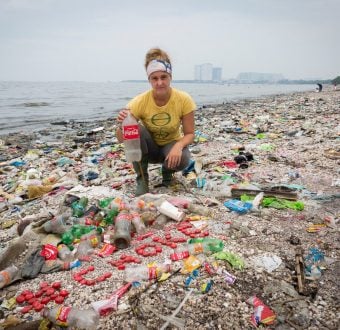In a major step forward, Dow Chemical in India, accepted
contaminated soil, water and 4,000 brooms from more than 200 Bhopal
gas affected survivors and their international supporters on the
eve of the 18th anniversary of the Union Carbide disaster. Mr.
Anand Vohra, Director of Finance, Dow India, assured the delegation
from the International Campaign for Justice in Bhopal, that he
would personally recommend to higher authorities in Dow that
re-mediation measures be undertaken to alleviate the suffering of
the gas affected people.
In addition to the protest in Bombay, Greenpeace activists were
busy in Michigan, the location of Dow’s international headquarters,
where they staged a reenactment of the 1984 gas tragedy to remind
people of the ongoing toxic legacy in Bhopal.Ý They also pressed
Dow management, including Michael Parker, Dow President and CEO, to
respond to Dow India’s recommendation of re-mediation for the
gas-affected victims.
ìDow is feeling the heat to act responsibly in regard to their
liabilities in Bhopal,” said Casey Harrell, Greenpeace Toxics
Campaigner.Ý ìThis announcement signifies the first time Dow’s
management has responded constructively to the demands of the
Bhopal people. Mr. Parker should take Mr. Vohra’s advice and
initiate discussions on re-mediation immediately.”
Union Carbide Corporation’s confidential internal documents
released recently reveal that the company knew about the extent and
nature of contamination at the Bhopal factory site. However, Union
Carbide did little to clean up the contamination before handing
over the site to the State Government.
Hundred of tons of highly toxic waste lies abandoned at the
pesticide factory site since Union Carbide fled the country after a
poisonous gas leak on December 3, 1984, at its plant caused the
world’s worst industrial disaster, killing 8,000 people in its
immediate aftermath.Ý More than 20,000 people have died to date. At
least one person a day still dies from gas-exposure related
diseases and 150,000 are in urgent need of medical attention. The
poisons have seeped into groundwater and a recent study by Fact
Finding Mission, New Delhi has found high levels of mercury in
mother’s milk, residing around the factory.
ìAlthough an independent clean up of
the Bhopal site on November 25th was brutally thwarted by the
Bhopal Police, we will continue targeting Dow until they clean up
the contamination in Bhopal, and addresses all pending issues
including provision of medical and economic rehabilitation,”
continued Harrell.

